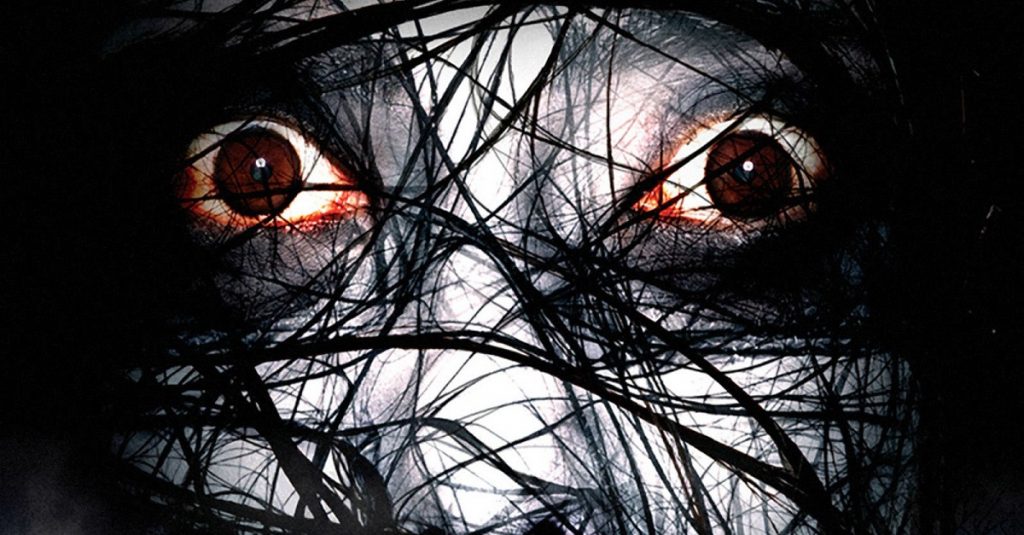
The Grudge: A Deceptive Ordinariness
The new Grudge is probably the harshest telling of the tale (originating with Takashi Shimizu’s Ju-onin 2002), and its moments of violence spring from an intimacy manifested in the despair- or hope-stricken hearts of its characters.
It’s a film shot in earth tones, underlining a small-town blandness that augments the feelings of uncertainty that overcome our middle-class pawns. The cast is admirably stripped of aesthetic perfection (in wardrobe and makeup) – even John Cho’s (Star Trek) star power is muted to the point of being unrecognizable.
To that end, much of The Grudge hinges on a deceptive ordinariness. The story is most easily summarized as “haunted house” fare with a more overtly metaphysical tilt. Unlike the presence in Poltergeist, the spirits of The Grudge are emotional vampires, removing the good in people until only the most savage monsters remain. In a purely literal sense, it’s a force that rips families apart.
There’s also the suggestion, like It Follows, that this force may be unconquerable. But in a divergence from David Robert Mitchell’s film, The Grudge takes the most banal of conceits – entering a house – and transforms it into an unshakable curse. At least in It Follows, the infected individual could spread their “disease” in hope of buying more time. Here, terror and violence are inevitabilities.
Character First
A key element of The Grudge is its solemn characters. Detective Goodman (Demian Bichir) inhabits the home of his lost-to-cancer mother. Detective Muldoon (Andrea Riseborough) is struggling to adjust to a new home and the recent death of her husband; compounding matters is her young, disaffected son (John J. Hansen). Peter and Nina Spencer (Cho and Betty Gilpin) are a happily-married couple faced with some hard news about their pregnancy. And William Matheson (Frankie Faison) attempts to do right by his decades-long marriage to Faith (Lin Shaye), as she contends with dementia.
There is such authenticity to the performances that the undercurrents of grief and dread are palpable. The reason The Grudge works as well as it does is because writer-director Nicolas Pesce puts character first. I was initially overwhelmed by the jagged timeline, but he interweaves the seemingly disparate threads with great skill.
Similarly, the attention to little details goes a long way: the cursed “999” address for the police station; the fact that the film is set in the mid-2000s, but the vehicles are relics from the 1980s; the desolation of deserted rural roads; and the way Zach Galler’s camera pushes in during establishing shots, giving us the “killer’s POV.” I also like how the narrative toggles between rural and suburban settings, but presents both as being locked in a mutual economic struggle to survive.
A Chameleon of Horror
The film belongs to Riseborough, who wields the dark, probing look that made her character in Mandy such a spellbinding enigma. She imbues Muldoon with a sense of morbid curiosity and vulnerability that is never less than compelling. I loved the comically oversized sweater she wears throughout – a literal manifestation of the security blanket she needs to face the outside world. Despite her trepidation, Muldoon is always pressing forward, implicating herself in finding the answer to a deadly puzzle. By establishing genuine stakes for the characters, Pesce makes their diminishing grasp on reality all the more tragic.
There are some caveats, though: the explanatory text that opens the film is redundant, and the aforementioned jump-scares feel studio-mandated due to The Conjuring series’ popularity. Some of the signature shocks seem obligatory, and let’s face it: there are only so many ways to make ghouls rising from bathtubs seem fresh and new.
With three features under his belt, Pesce is becoming a chameleon of horror. The Eyes of My Mother was disturbing in how it made the viewer inhabit the protagonist’s warped headspace; in the darkly comedic Piercing, he depicted two fucked-up people meeting their match during one fateful night. With The Grudge, he embraces “normality” for the first time, crafting fear from the unquantifiable. Unlike Ari Aster, who creates picture-perfect images at the expense of character, Pesce realizes that intimacy is essential to an unsettling experience.
3 out of 5 stars
The Plot Sickens: Stay awake with Jonny Numb’s review of Doctor Sleep!
Crash Analysis Support Team
Jonny Numb

Jonny Numb (aka Jonathan Weidler) never learned how to swim, but can float just fine. He co-hosts The Last Knock podcast with Billy Crash, and can be found in the social-media sewers of Twitter and Letterboxd @JonnyNumb.
Get your Crash Palace and The Last Knock gear! 
THE LAST KNOCK horror podcast is a Crash Palace Productions’ featured show. Besides this site, you can find THE LAST KNOCK on iTunes with new shows posted every other Sunday at 9 PM ET.
Crash Palace Productions website design and creation from Brian Yount Digital Enterprises with banner and THE LAST KNOCK art from Palko Designs. Logo designs from Paul Belci.
(The Grudge image from Dread Central.)
